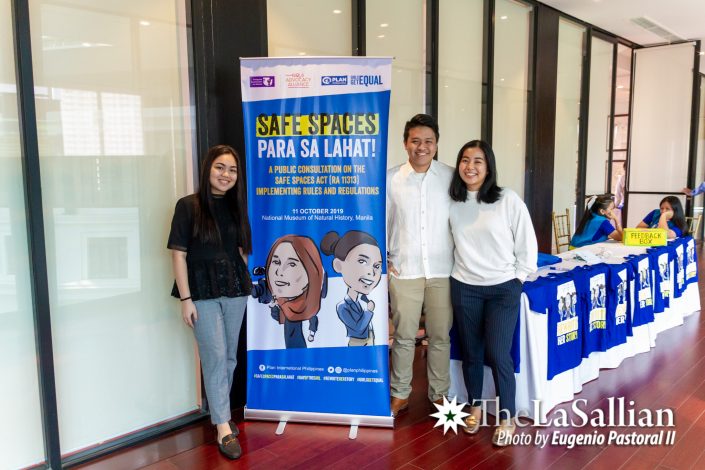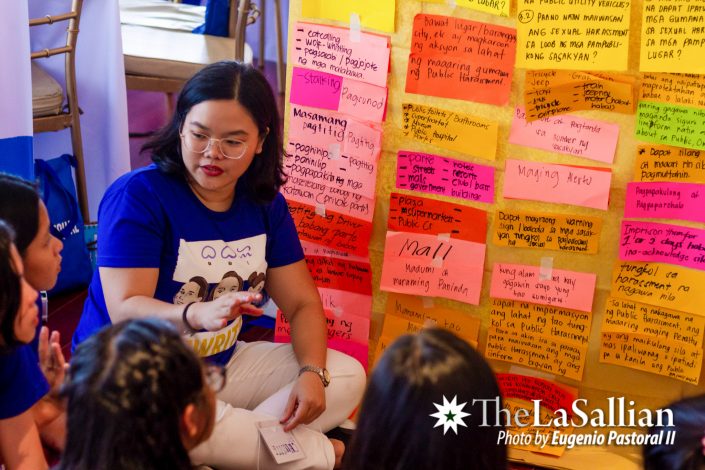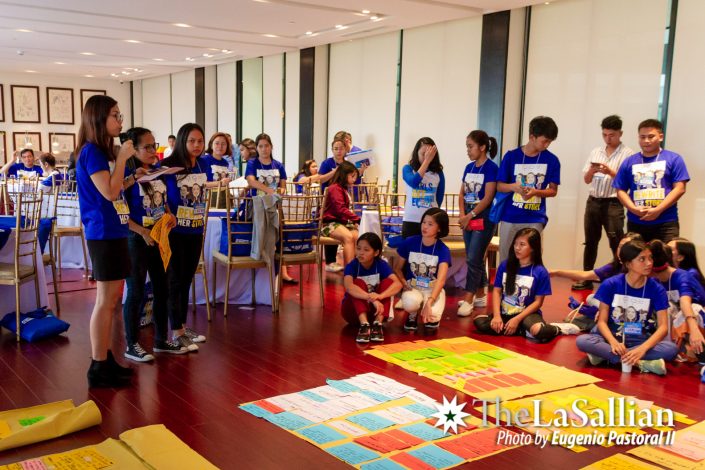The Philippine Commission on Women (PCW)—a government agency that aims to promote and protect the rights of women in the Philippines—in partnership with global humanitarian organization Plan International held a youth consultation on the implementation and regulation of Republic Act 11313, also known as the Safe Spaces Act, last October 11 at the sixth floor of the National Museum of Natural History.
A myriad of local youth councils, including Sangguniang Kabataan (SK) Malabon, SK Valenzuela, and SK Mandaluyong, were present at the Safe Spaces Act consultation and participated in the event’s activities and workshops, which focused on discussing the concept of a safe community. Representatives from DLSU and the Polytechnic University of the Philippines were also present to further discussions on ways to help make their respective universities a safe space.
The bigger picture
Plan International Philippines Project Officer Camille Madiz welcomed the participants to the event and expressed her gratitude for such a diverse group of attendees, some coming from far-flung communities in Pampanga and Masbate. She promised that the event’s organizers “will strive to understand where [the participants] are coming from,” while also stressing that all of the attendees must show respect to one another as they share their different insights and beliefs during discussions.
On the importance of safe spaces for the youth, Plan International Philippines Deputy Country Director for Programs Ryan Lander highlighted the state of the country when it comes to sexual harassment. He explained that eight out of 10 Filipino women aged 18 to 24 have already experienced sexual harassment.
“Cases of cyberbullying, harassment, abuse, [and] online sexual exploitation are also increasing at alarming rates,” he also emphasized.
Lander called the Safe Spaces Act “groundbreaking” with the penalties it introduces against catcalling, misogynistic slurs, and other forms of sexual harassment both in physical and online spaces within the Philippines.
Despite cases of sexual harassment and violence within the private sector being “difficult to account [for]”, Lander prompted that regardless of age, gender, or life choices, “nobody deserves to walk the streets of Manila afraid.”
Educating one another
During a workshop conducted in the morning, Beth Angsioco—National Chairperson of the Democratic Socialist Women of the Philippines (DSWP)—stated her agreement for “the need for partnerships” with other organizations, communities, and even educational institutions. Speaking to an audience consisting mostly of high school and college students, Angsioco stressed, “The youth should empower the youth.”
The DSWP National Chairperson also chided misapprehensions regarding equality, noting that as long as marginalized groups such as the poor and LGBTQ+ continue to be treated unjustly, the Philippines will never truly attain equality.
She voiced out, “For us to have a safe space, we need to make that equality a reality.“
Angsioco believed that the youth play a crucial role the Implementing Rules and Regulations (IRR) status of the Safe Spaces Act. She encouraged attendees to read the law and make improvements to ensure that the act covers even marginalized groups of the community.
‘For the students’
DLSU students are no strangers to threats inside and around campus. University Student Government (USG) President Lance Dela Cruz acknowledged the student body’s grievances and noted how the Safe Spaces Act is in line with his administration’s initiatives, such as the revision of the anti-sexual harassment guidelines and incorporation of a new anti-discriminatory guideline, which he revealed are both still in their infancy stage.

For all of the USG’s efforts to set standards in addressing various forms of harassment, the USG President noted, “It would be much easier to do if there is a mandate coming from the national government to have these cascaded down to the university setting.”
Dela Cruz assured that he and the Vice President for External Affairs are working on ways to guarantee a campus area where students can walk freely—even at night—safe from catcalling and other forms of harassment.
As he participated with other members of the USG in the consultation of the IRR of the Safe Spaces Act, he praised how the USG’s participation of the event was a manifestation of his administration’s commitment to having a zero-tolerance policy on harassment and discrimination within the University.
He ensured, “So long as we are your student representatives, we will ensure that the policies that we have in the University are for the students.”


